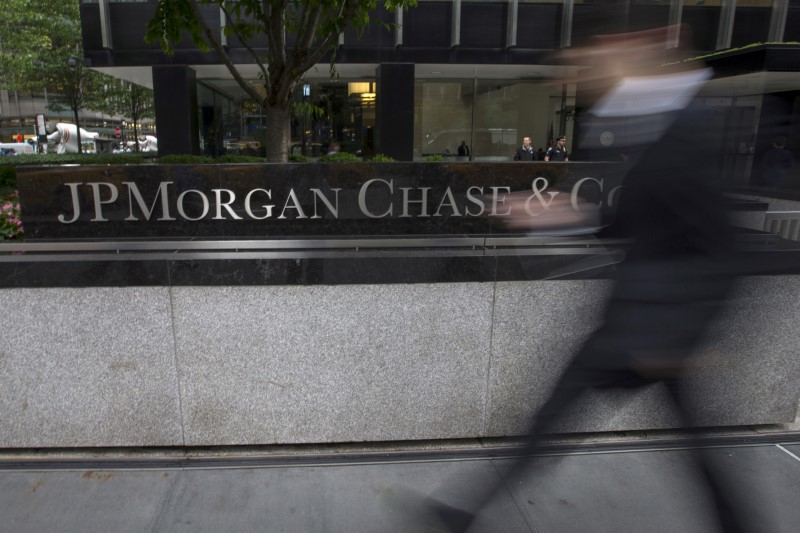By Marc Jones
LONDON (Reuters) - JP Morgan has started a consultation on including Gulf states in its widely tracked emerging market government bond indexes, although a number of issues remain sticking points.
JP Morgan's EMBI bond index is a key performance benchmark for emerging market investors. Inclusion in the index can encourage hundreds of billions of dollars of buying of that country's bonds, lowering its borrowing costs.
Slides produced as part of the bank's annual index "governance consultation" first looked at various metrics for Gulf states, whose relatively high incomes don't always fit the standard definition of an "emerging" market.
Gulf Cooperation Council (GCC) countries - Saudi Arabia, Bahrain, Kuwait, Oman and Qatar - have issued a quarter of all new debt sold by emerging markets in each of the last three years. They now account for 14 percent of total EM debt stock.
A spokesman for the bank declined to comment on the likelihood of Gulf countries getting the green light in the next update of the index, which normally gets announced around September.
A source at the bank told Reuters that its "indices work to strict rules of eligibility and this rumored scenario with GCC countries (gaining inclusion) may never come to pass".
The presentation showed how GCC countries are too high on the World Bank High Income classification (IIC) index to meet normal emerging market index eligibility.
However, there could be other ways to look at it, such as purchasing power parity ratios that the IMF and OECD use to compare different countries' wealth. That would class GCC countries firmly as emerging markets.
Analysts and investors were beginning to run the numbers on what inclusion would mean in terms of bond buying.
According to JP Morgan's estimates, about $360 billion track its hard-currency emerging market debt indexes. About $150 billion of debt from GCC may get added with an expected weight of 12.33 percent. A phase-in could happen at 2 percent a month for six months.
"This could lead to passive inflows of over $45 billion, which will be about 30 percent of total amount outstanding of the bonds to be added," said Abhishek Kumar, the managing director for emerging markets debt and fixed income beta at State Street Global Advisers.
Dino Kronfol, chief investment officer for global sukuk and MENA fixed-income strategies at Franklin Templeton said it would be a "tremendous development and very positive for the region, particularly efforts to develop regional capital markets."
Assessing the situation in China, the JP Morgan consultation acknowledged that significant progress had been made in opening the country's bond markets to foreign investors since 2016.
"We continue to observe key action items to determine GBI-EM Global Diversified eligibility," JP Morgan wrote in the presentation slides, referring to the bank's local sovereign debt benchmark.
Adding only the more readily traded or "liquid" Chinese government bonds could result in an estimated weight of 7 percent in the bank's flagship GBI-EM Global Diversified index.
China has $800 billion of bonds represented in the GBI-EM Broad index, but the replicability of these bonds remained unclear, JP Morgan added.

Just over $230 billion of assets under management are benchmarked against its local debt indexes, of which $211 billion are benchmarked again the GBI-EM Global Diversified index, the bank said.